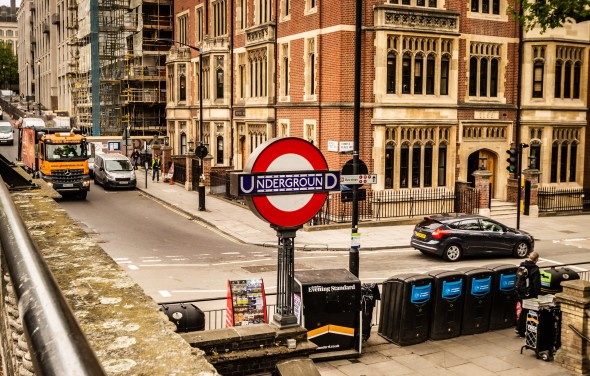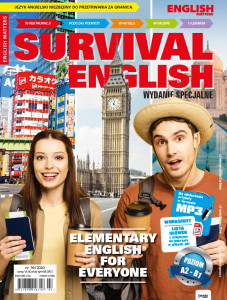
Moving Around Town
Everyone in today’s world travels. We need English, or another foreign language if we go somewhere abroad. It is sometimes necessary to talk to local people and ask them for directions to a place we want to visit.
It can also happen that somebody asks you about a place in your home town. Would you like to help this person, but you can’t? Let’s change that! It’s possible to feel comfortable when you use English to move around town!
Places in a City
Let’s start with the basic vocabulary for the places in a city which you need to know what to call.
• Bank: a place where you can take money out or make a transfer
• ATM: a cash machine from which you can take money out using a special card
• Exchange office/currency exchange: a place where you can change your national currency into the money you need in a foreign country
• Ticket machine: a machine where you buy train/bus tickets or a daily pass
• Railway/bus station: a place where there are a lot of buses or trains leaving and arriving
• Bookshop: a place where you can buy books
• Library: a place where you can borrow books
• Theatre: a place where you can see actors on stage in different performances
• Museum: a place where you can see different objects of historical, scientific or artistic value. For example, famous museums in London are the British Museum, Tate Modern or
the Natural History Museum
• Cinema: a place where you can watch films
• Park or garden: an area with a lot of trees, bushes and alleys where you can walk
• Square: an area in a city of a square shape with buildings around it
• Statue: an object made of stone or metal made to look like a person or animal
• Market: a place with a lot of stands where you can buy, for example, local food
• Tourist office: an office where tourists can go to get information about the city they are visiting
• Souvenir shop: a shop where you can buy local things such as postcards or other souvenirs
• Church: a building where religious people go to pray
• Pick-up point: a well-known spot in a city where a lot of people or tourists arrange to be picked up by somebody else
Prepositions of Place
Once you feel comfortable with the vocabulary for naming different things and places in a city, it’s essential to be able to use prepositions of place. We’ll start with
prepositions in, at and on. Of course there are many more to learn, but let’s just have a look at a few examples and sentences.
AT
• At the bus stop: A lot of tourists wait at this bus stop.
• At the end of the street: There’s a souvenir shop at the end of the street.
• At the crossroads: You will find the nearest bank at this crossroads. (a place where two roads meet and cross each other).
IN
• In London: My sister lives in London.
• In France: I spend my holiday in France every year.
• In the theatre: I like actors who work only in the theatre.
• In a library: She spends hours in a library writing her novel.
ON
• On the bus/train/plane: I met him on the bus. I always read on the plane.
• On the corner: There’s a little café on the corner (where the street crosses another).
If you are interested in more issues about travel and getting around town, look for English Matters Survival English – Elementary English for Everyone available at kiosk.colorfulmedia.pl
